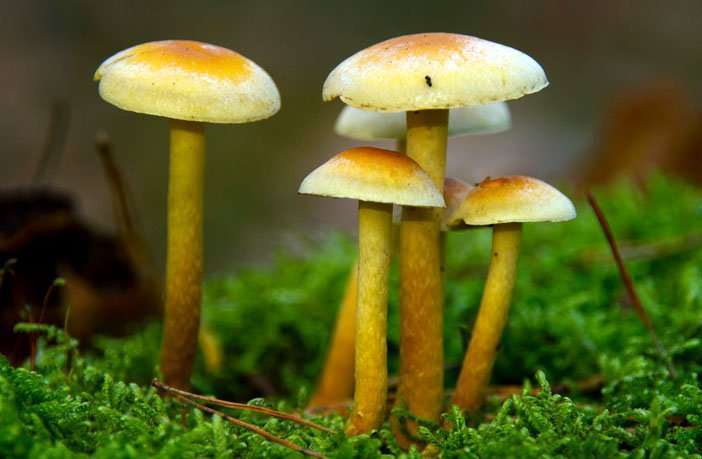Psilocybin, the active compound in magic mushrooms, could make people feel more connected to nature and less likely to endorse authoritarian views, according to new research from the Psychedelic Research Group at Imperial College London.
The new study, published in the journal Psychopharmacology, is the first to provide experimental evidence that psilocybin treatment can lead to lasting changes in these attitudes.
Study authors Taylor Lyons and Robin L. Carhart-Harris write that “our findings tentatively raise the possibility that given in this way, psilocybin may produce sustained changes in outlook and political perspective, here in the direction of increased nature relatedness and decreased authoritarianism.”
Psychedelic drugs have been associated with anti-authoritarian countercultures ever since the hippies of the 1960s.
A previous study that surveyed 1,487 individuals found that people who had used classic psychedelics like LSD and magic mushrooms were more likely to report that they enjoyed spending time in nature and were more likely to see themselves as a part of nature.
Another study that surveyed nearly 900 people found that psychedelic drug use was associated with liberal and libertarian political views, higher levels of openness to new experiences, and greater nature relatedness.
But Lyons and Carhart-Harris wanted to know whether psilocybin use actually promoted anti-authoritarianism and nature relatedness — or whether psilocybin use was a consequence of it.
The new study compared 7 participants with treatment-resistant major depression who had received two oral doses of psilocybin to 7 healthy control subjects who had not received psilocybin.
The researchers surveyed the participants about their political views and relationship to nature prior to the psilocybin sessions, then again at the 1 week and 7–12-months follow-ups.
Participants who received psilocybin treatment showed a significant increase in nature relatedness one week later and the change was sustained at the 7–12-month follow-up. “Before I enjoyed nature, now I feel part of it. Before I was looking at it as a thing, like TV or a painting… [But now I see] there’s no separation or distinction, you are it,” one participant told researchers.
The participants who received psilocybin treatment also showed a significant decrease in authoritarian attitudes, which was also sustained at the follow-up. The researchers also observed a reduction of depressive symptoms in these participants.
There was not a significant pattern of changes among the participants who had not received psilocybin.
Unlike the previous cross-sectional studies, the experimental design of the new research allows Lyons and Carhart-Harris to draw some inferences about cause and effect. However, the study’s small sample size is an important limitation. It is also possible that psilocybin treatment decreased authoritarianism and increased nature relatedness indirectly by reducing depressive symptoms.
“It would be hasty, therefore, to attempt any strong claims about a causal influence due specifically to psilocybin at this stage,” Lyons and Carhart-Harris caution in their study.

kerovon on January 23rd, 2018 at 17:14 UTC »
Link to the full study.
Abstract for convenience:
Phlox_carolina on January 23rd, 2018 at 15:31 UTC »
According to a study with seven test subjects & seven control subjects.
matt2001 on January 23rd, 2018 at 15:07 UTC »
Interesting - seems that liberal democracies would find them useful: